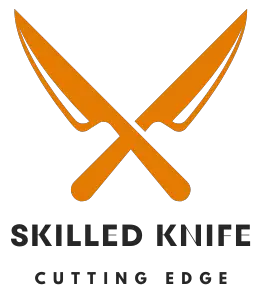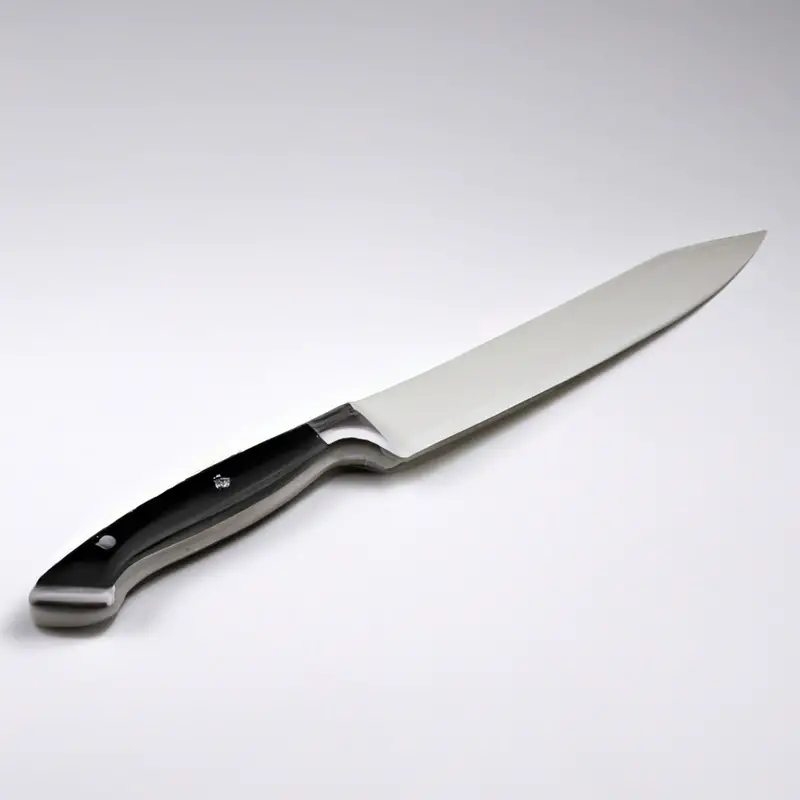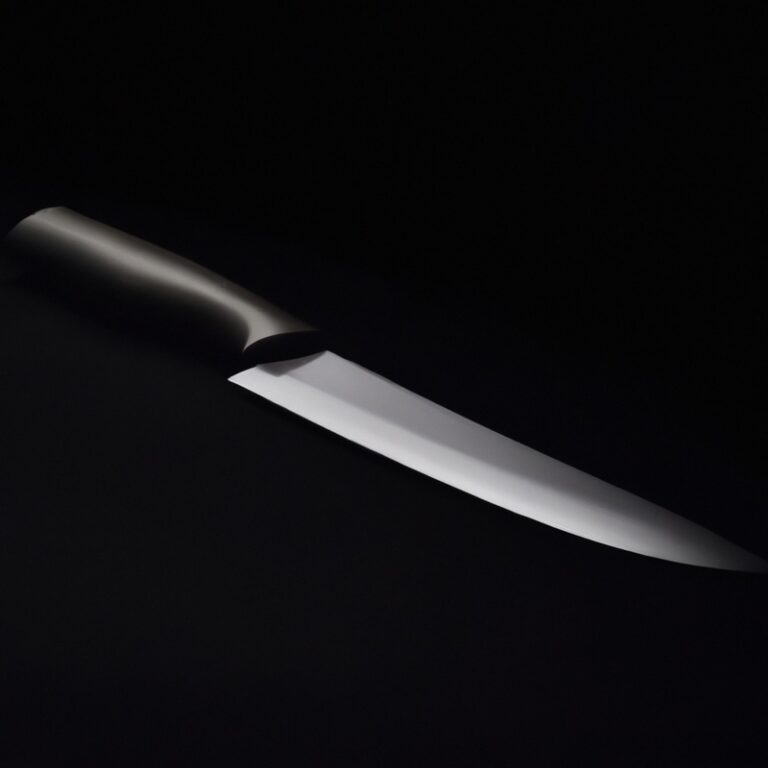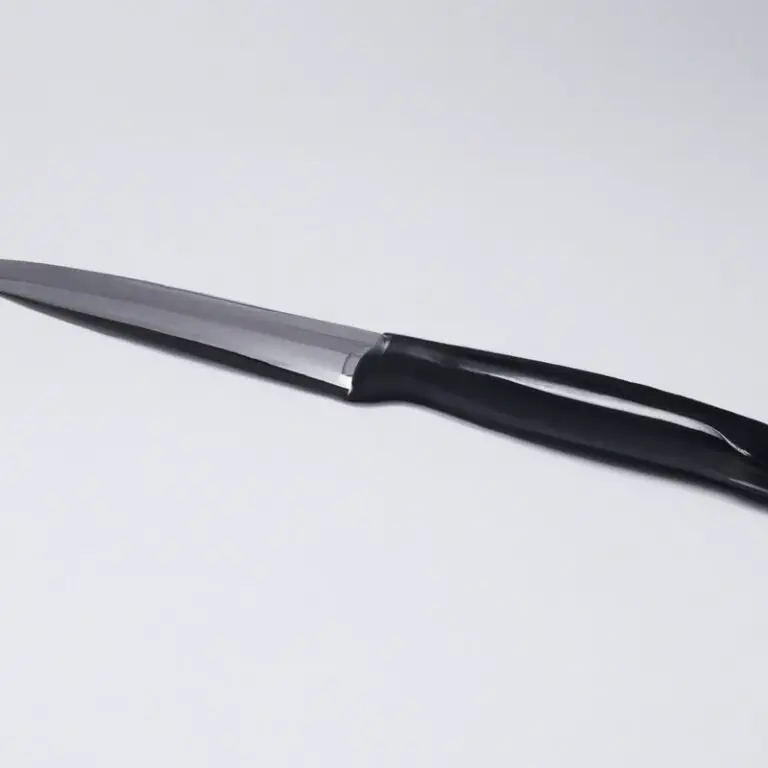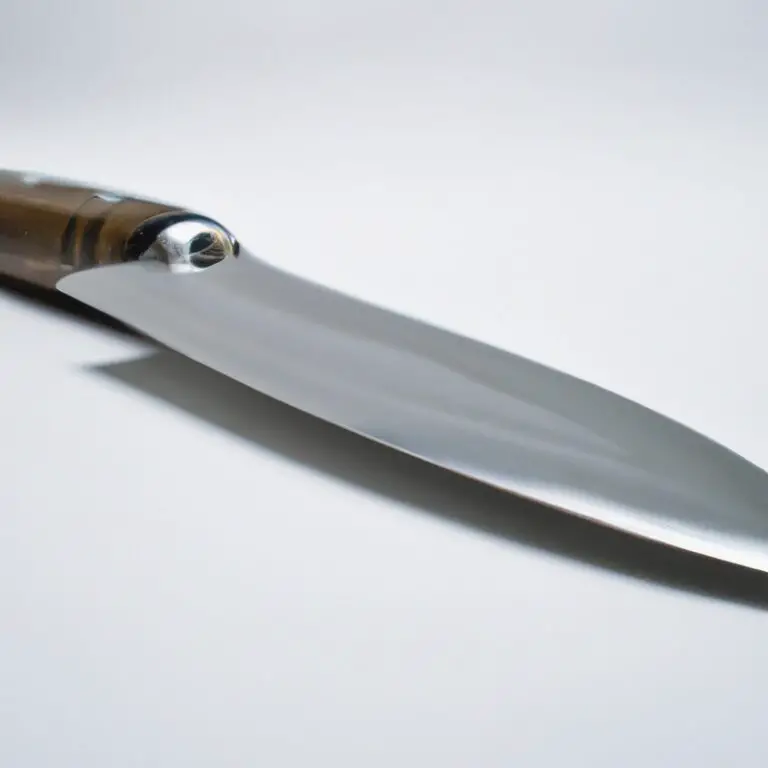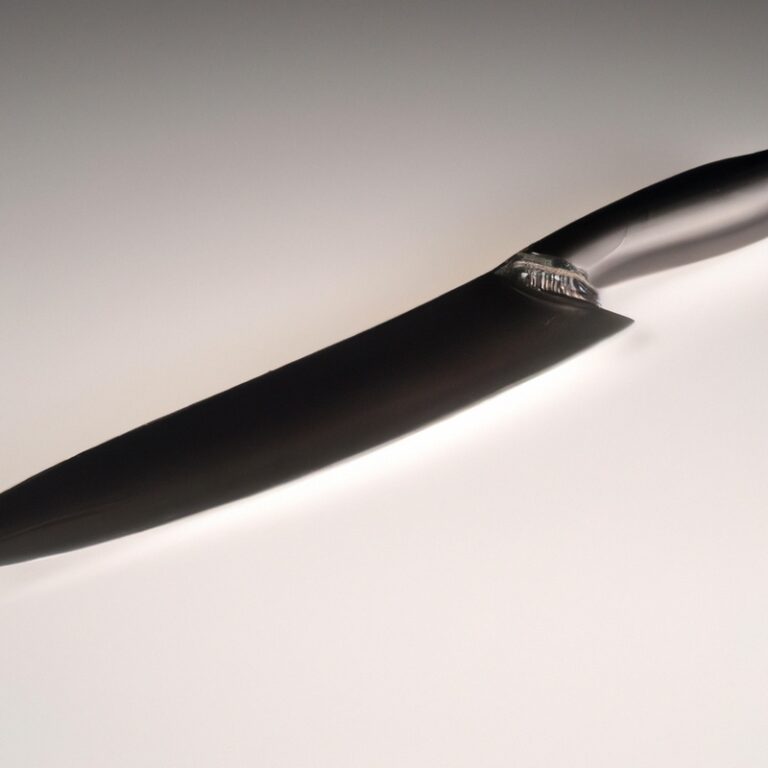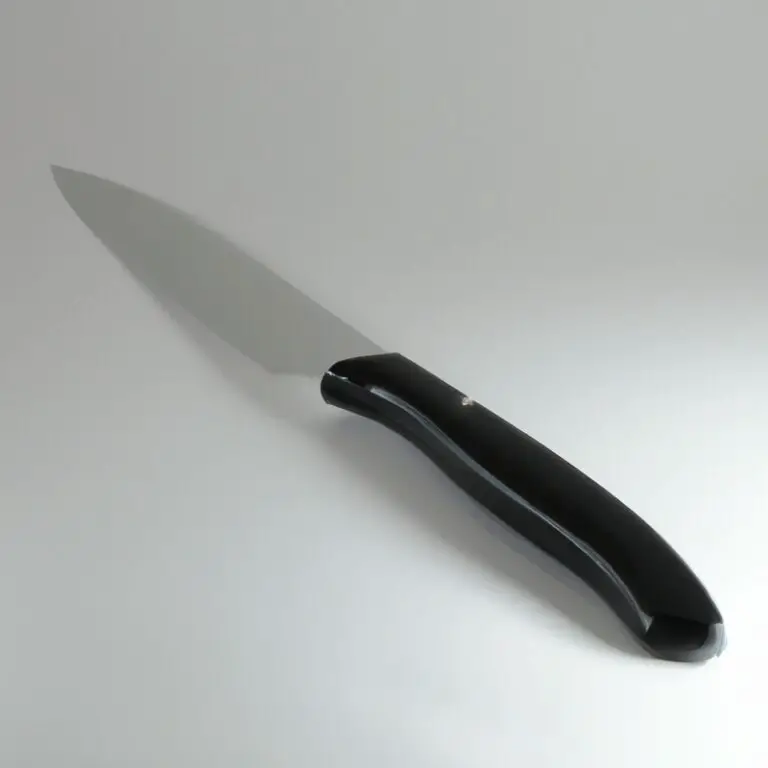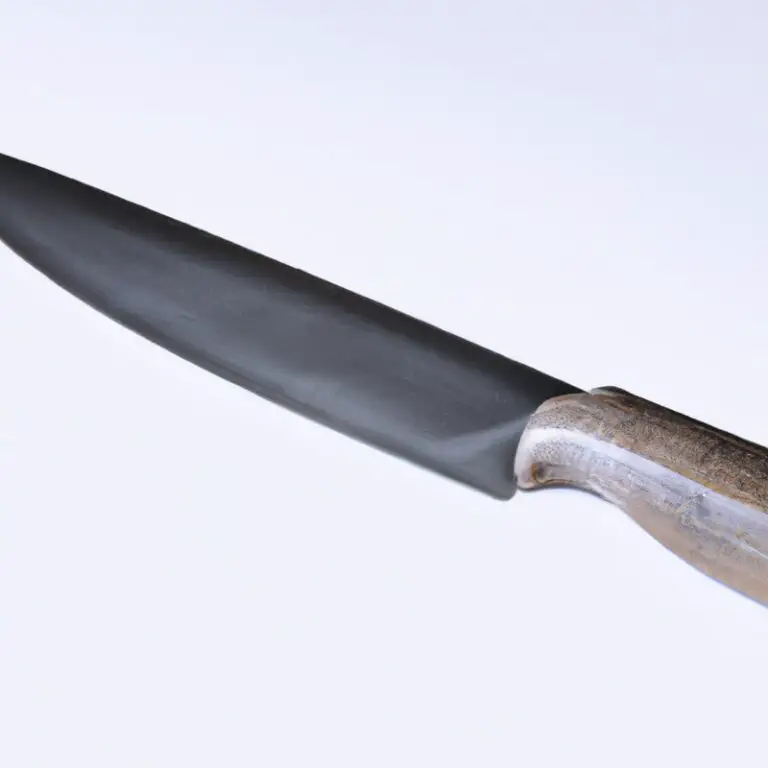What Is The Effect Of Vanadium In Knife Steel?
Key Takeaways:
- The addition of vanadium in knife steel improves hardness and wear resistance.
- Vanadium enhances the overall performance of knife steel by increasing its toughness.
- Vanadium can help in achieving a finer grain structure, leading to improved sharpness and edge retention.
- The optimal amount of vanadium in knife steel varies depending on the specific application and desired properties.
Have you ever wondered what makes a knife blade strong, sharp, and durable? Well, one of the key ingredients that contributes to these desirable qualities is vanadium.
Never heard of it?
Don’t worry, I’m here to shed some light. Vanadium is a versatile element that, when added to knife steel, creates remarkable enhancements.
It forms carbides, refines the grain structure, and enhances properties like hardness, wear resistance, strength, and toughness.
In this article, we’ll delve into the effects of vanadium on knife steel and explore the fascinating world of this element that plays a vital role in crafting exceptional knives. So, buckle up and get ready to dive deep into the fascinating world of vanadium!
| Effect of Vanadium in Knife Steel | Description |
|---|---|
| Strength | Vanadium increases the strength and toughness of knife steel, resulting in improved resistance to wear and chipping. |
| Hardness | Vanadium enhances the hardness of knife steel, allowing it to retain a sharp edge for longer periods. |
| Corrosion Resistance | Vanadium improves the resistance of knife steel to corrosion, extending the lifespan of the blade. |
| Grain Refinement | Vanadium aids in the grain refinement process, enhancing the overall quality and consistency of the steel. |
| Fine Carbide Distribution | Vanadium helps in achieving a fine carbide distribution in knife steel, contributing to improved edge retention. |
What is vanadium?
Definition of vanadium
Vanadium is a chemical element that is classified as a transition metal.
It has the symbol V and the atomic number 23.
This element is important in many industrial applications, including the production of steel and in the manufacturing of certain types of batteries.
In knife steel, vanadium plays a crucial role in enhancing various properties, such as hardness, strength, and wear resistance.
It also helps in improving the steel’s ability to retain a sharp edge and provides resistance against corrosion.
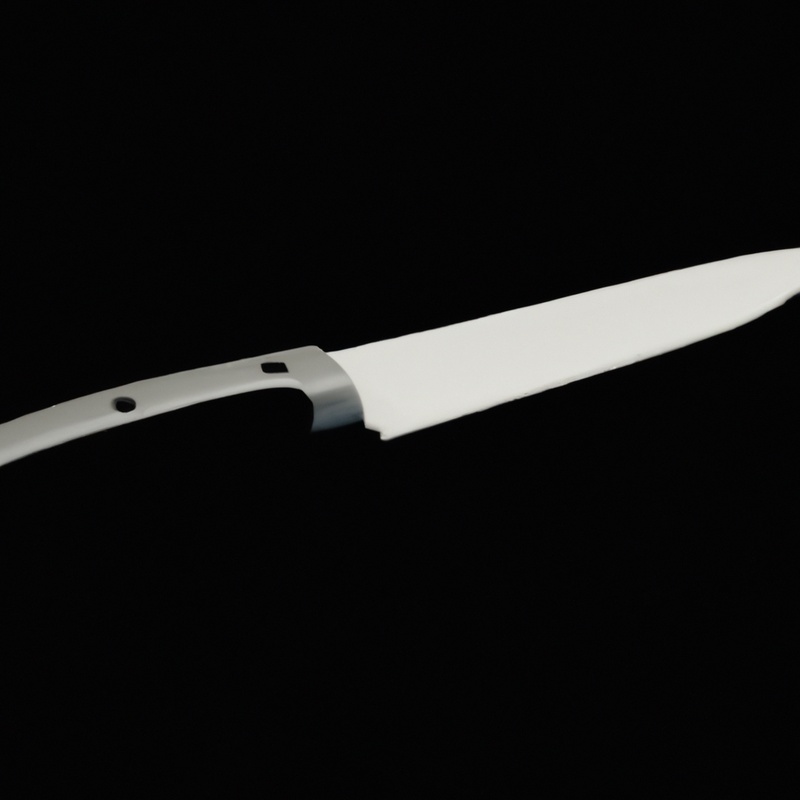
Properties of vanadium
Vanadium possesses several important properties that make it valuable in various applications, including steel production. Firstly, it has a high melting point and is resistant to corrosion and oxidation, making it suitable for use in extreme environments.
Secondly, vanadium is known for its excellent strength and toughness, contributing to the durability of materials it is incorporated into.
Lastly, it exhibits the ability to form carbides, which enhances the hardness and wear resistance of steels. These properties make vanadium a vital element in the production of high-performance knife steels.
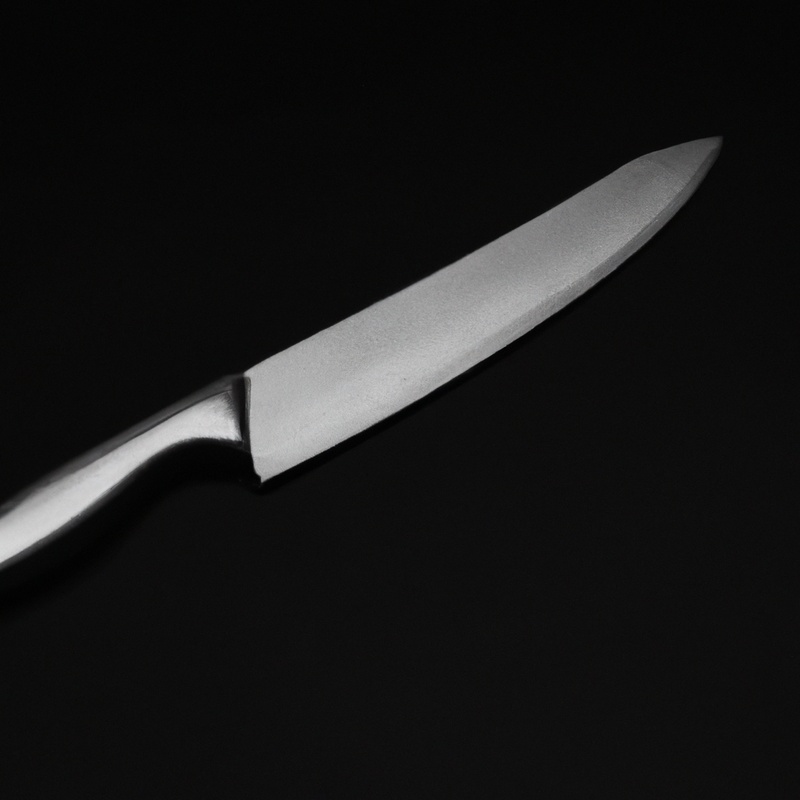
Vanadium in knife steel
Role of vanadium in steel
Vanadium plays a significant role in steel by enhancing its overall performance.
It acts as a carbide former, promoting the formation of vanadium carbides, which contribute to increased hardness, wear resistance, and edge retention in knife steel.
Additionally, vanadium acts as a grain refiner, refining the steel’s grain structure and improving its strength and toughness.
It also helps to improve corrosion resistance and stabilize the alloy composition.
Additionally, it has a positive impact on the ease of sharpening.
Overall, the addition of vanadium in knife steel enhances its various properties, making it a valuable element in steel production.
Effects of vanadium on knife steel properties
Vanadium has several effects on the properties of knife steel.
Firstly, it enhances hardness and wear resistance, making the blade more durable and long-lasting.
Secondly, vanadium improves strength and toughness, allowing the knife to withstand heavy use without breaking or chipping.
Additionally, vanadium acts as a carbide former, promoting the formation of hard carbides that further enhance wear resistance.
It also acts as a grain refiner, resulting in a fine and uniform grain structure, which improves overall performance.
Vanadium also contributes to corrosion resistance and helps stabilize the alloy.
Lastly, it can impact the ease of sharpening the knife.
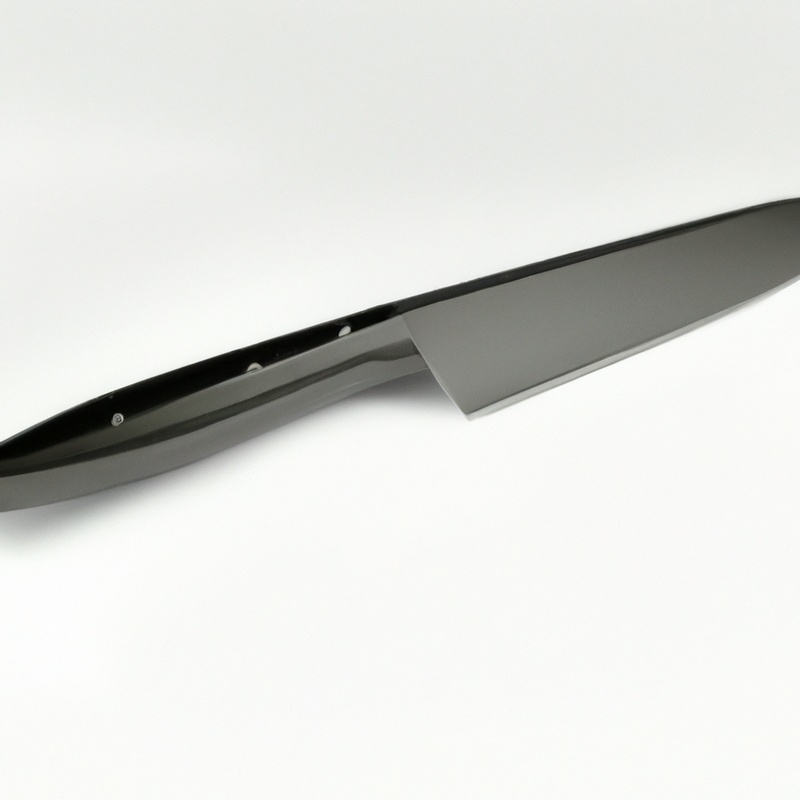
Enhancements in knife steel due to vanadium
Increased hardness and wear resistance
Vanadium plays a key role in enhancing the hardness and wear resistance of knife steel.
When vanadium is added to the steel alloy, it forms vanadium carbides, which are incredibly hard and help increase the overall hardness of the steel.
This increased hardness makes the knife steel more resistant to wear, ensuring that the blade maintains its sharpness for a longer period of time.
So, with the incorporation of vanadium, knife steel becomes harder and more resistant to wear, resulting in a longer-lasting and more durable blade.
Improved strength and toughness
Vanadium plays a significant role in improving the strength and toughness of knife steel.
It promotes the formation of fine and uniform carbides, which enhance the overall strength of the material.
Additionally, vanadium helps in refining the grain structure of the steel, resulting in improved toughness.
This means that knives made with vanadium-containing steel can withstand higher amounts of stress and impact without breaking or chipping.
The combination of increased strength and toughness makes vanadium a valuable element for enhancing the performance and durability of knife blades.
Enhanced edge retention
Enhanced edge retention is a significant benefit of vanadium in knife steel. The addition of vanadium helps the steel to maintain a sharp edge for a longer period of time.
This is because vanadium forms hard, wear-resistant carbides in the steel matrix, which prevent the edge from dulling quickly.
The vanadium carbides act as obstacles to prevent wear, resulting in increased edge retention. With vanadium-enhanced knife steel, you can enjoy the convenience of using a sharp knife for a longer duration before needing to resharpen it.
Vanadium as a carbide former
Formation of vanadium carbides
Vanadium carbides are formed when vanadium atoms bond with carbon atoms in steel.
These carbides play a crucial role in enhancing the performance of knife steel.
The formation of vanadium carbides improves the hardness and wear resistance of the steel, making the blade more durable.
These carbides also contribute to improved edge retention, allowing the knife to maintain its sharpness for longer periods.
Additionally, vanadium carbides help refine the steel’s grain structure, leading to enhanced strength and toughness.
Overall, the formation of these carbides is a key factor in maximizing the performance of knife steel.
Vanadium as a grain refiner
Grain refinement process
Grain refinement is an important process in knife steel production.
It involves reducing the size of the steel grains, which are the individual crystals that make up the metal.
This is typically achieved by adding small amounts of vanadium to the steel alloy.
Vanadium acts as a grain refiner by promoting the formation of fine and uniform grains.
The smaller grain size improves the steel’s mechanical properties, such as hardness, strength, and toughness.
Additionally, it enhances the overall performance of the knife, including its edge retention and sharpenability.
Impact of grain refinement on knife steel performance
Grain refinement plays a significant role in determining the performance of knife steel. When the grains in the steel are smaller and more uniform, it enhances the steel’s properties.
Here are the impacts of grain refinement on knife steel performance:
- Increased hardness: Smaller grain size results in higher hardness, which is crucial for a knife’s ability to hold an edge and resist wear.
- Improved strength and toughness: Fine-grained steel exhibits increased strength and toughness, allowing the knife to withstand heavy use and prevent damage or chipping.
- Enhanced edge retention: With finer grains, the knife’s edge is less prone to dulling, ensuring it remains sharp and effective for longer periods.
- Better overall performance: Grain refinement contributes to improved cutting performance, edge stability, and overall durability of the knife.
In essence, grain refinement directly impacts the performance of knife steel, resulting in a more robust and high-performing tool.
Other effects of vanadium in knife steel
Corrosion resistance
Corrosion resistance is another significant effect of vanadium in knife steel. Thanks to its presence, the steel becomes more resistant to rust and corrosion, making it ideal for use in moist or high-humidity environments.
Vanadium helps to form a protective oxide layer on the steel’s surface, preventing the penetration of corrosive substances.
This not only ensures that the blade remains in good condition for longer but also reduces the need for frequent maintenance and cleaning.
Alloy stabilization
Alloy stabilization is another important effect of vanadium in knife steel. Vanadium helps to prevent the formation of unwanted carbides, which can negatively impact the steel’s performance.
By stabilizing the alloy, vanadium ensures that the steel maintains its desired properties, such as hardness, toughness, and wear resistance, over time.
This means that knives made with vanadium alloyed steel will remain sharp and durable, even with prolonged use. So, the presence of vanadium in knife steel contributes to the overall stability and performance of the alloy.
Impact on ease of sharpening
Vanadium in knife steel has a notable impact on the ease of sharpening. It forms very hard vanadium carbides, which can make sharpening a bit more challenging.
However, these carbides also contribute to the steel’s overall wear resistance and edge retention.
So, while it may take a bit more effort to sharpen, the blade will maintain its sharpness for a longer time. Ultimately, the choice between easier sharpening and better edge retention depends on personal preference and the specific needs of the knife.
Final Verdict
Vanadium plays a crucial role in enhancing the properties of knife steel.
It increases hardness, wear resistance, strength, and toughness, leading to improved performance and durability.
Vanadium also acts as a carbide former, contributing to edge retention, and as a grain refiner, enhancing overall performance.
Additionally, it provides corrosion resistance, stabilizes the alloy, and can affect ease of sharpening.
Overall, the inclusion of vanadium in knife steel is essential for creating high-quality, reliable blades that can withstand the rigors of cutting tasks.
With its numerous benefits, vanadium is a key element in the world of knife making.
